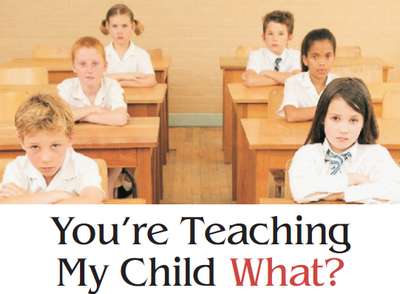Schools Will Reject ‘Extreme’ Sex Ed Guidelines
 Media Release 29 May 2015
Media Release 29 May 2015
Family First NZ says that most schools along with the parents in the school community will rightly reject the extreme elements of the new sexuality education guidelines, and that resources should be targeted at parents to help them educate their own children.
“Primary school children as young as 5 will be indoctrinated with issues around ‘gender stereotypes and norms’, ‘sexuality and gender well-being’, ‘gender, sexuality and diversity’, and ‘gender and sexuality messages’. But most children that age simply want to play, eat and have fun. We should let children be children,” says Bob McCoskrie, National Director of Family First NZ.
“Parents will object to programmes targeted at children as young as five undermining the role and values of parents, and resources which fail to take into account the emotional and physical development of each child and the values of that particular family.”
“Among the implications of the proposals around so-called ‘gender’ issues in schools is that sex-specific facilities, including changing rooms, showers, toilets or sports teams may no longer be directed on the basis of a child’s actual biological sex. Students could pick the toilet or changing room or sports team or uniform of the gender with which they identify at that time. They give the opportunity, for example, for male students who pretend to be transgender an alibi to use girls’ toilets, showers, and changing rooms. But the expectation of parents and the children themselves is to see students of the same sex in places like changing rooms and showers.”
“The ‘gender agenda’ will simply lead to confusion in schools. Ignoring biology is not a proper solution. What children really need is affirmation of their unique personality and appropriate treatment for their unhappiness and other presenting emotional issues. Most children with gender dysphoria will not remain gender dysphoric after puberty. To push the gender agenda in schools is a dangerous step to take,” says Mr McCoskrie.
“There is definitely a need for young people to be aware of the harms of pornography, rape and teen pregnancy, and issues around consent, but parents know their children the best and should determine the best timing and most appropriate way to tackle these sensitive topics. A valueless ‘one size fits all’ approach is far too simplistic and can even be harmful.”
“Studies show that the biggest protective factors for coping with puberty and sexual involvement are married parents, family values, parental supervision, and parental expectations for behaviour. What happens at home is the greatest determinant of the outcomes for the young person,” says Mr McCoskrie.
A recent international study found that by the age of ten years old, most children will have already had their first ‘facts of life’ talk with their parents. The online survey of 5,420 parents and 2,569 children aged 5-10 years old was undertaken during 2014 in New Zealand, Australia, Brazil, Canada, Czech Republic, France, Germany, the United Kingdom and the United States. The AVG Technology survey found that most parents plan to have the chat about adult topics including pornography, sex and puberty by the time their kids are 10-years-old, and that 76% believe that the Internet has encouraged the conversation on adult themes with children at an increasingly early age.
“This is a great result and shows that parents are now looking to pre-empt the unacceptable messages being pushed in the media, on the internet, and by groups abusing the sex education curriculum which pollute their young children’s minds and innocence. Parents are the best moral gatekeepers for their children,” says Mr McCoskrie.






